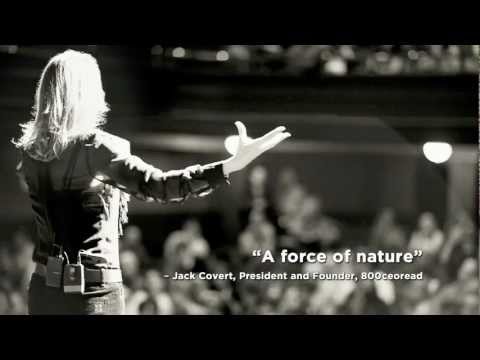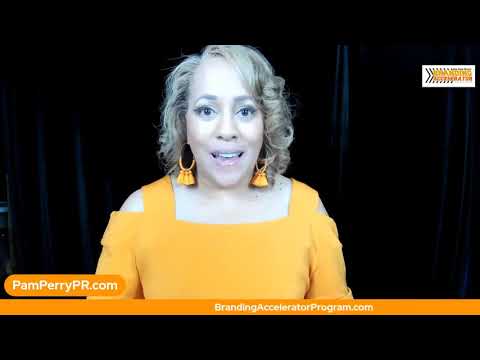In today’s fast-paced world, branding for speakers isn’t just a trend—it’s a necessity. The competitive landscape of public speaking demands that you set yourself apart with a distinctive brand. Your brand shapes how audiences perceive you, influences your opportunities, and ultimately dictates your success in the industry. Those who master sound creativity in their branding can resonate better with their audience, creating a lasting impact. Let’s dive into a comprehensive framework for building a powerful personal brand that captivates and engages.

Branding for Speakers: The Essential Framework
When it comes to branding for speakers, understanding the foundational elements is crucial for paving your way to success. The key is to curate an authentic experience, ensuring your message aligns with your values and personality. Here’s how to create a resonant brand that captures attention and fosters audience loyalty.

Top 7 Strategies for Powerful Branding for Speakers

The Role of Sound Creativity in Branding for Speakers
Sound creativity isn’t merely about choosing topics; it transforms how you deliver your message. Incorporating sound elements into your presentations can significantly influence engagement and retention. By embracing sound creatively, you engage with audiences on a deeper level.
By treating sound as a tool rather than just a backdrop, you redefine your branding strategy and create auditory experiences that are as powerful as your visual identity.

Innovating Your Speaker Brand for a 2024 Audience
Emerging technology presents limitless opportunities to innovate your branding for 2024. Consider utilizing AI-driven tools to gain insights into audience engagement, or explore virtual reality to create immersive experiences. By embracing new avenues, you can distinguish yourself from competitors.
As we approach 2024, sound creativity merges with innovative strategies for branding, helping speakers carve out unique identities and build deeper connections. Your brand is your voice; let it resonate powerfully in the crowded speaking landscape.
Building a durable personal brand is vital for speakers. Branding for speakers harnesses unique sound creativity and innovative strategies to create a compelling presence that can help you shine in the spotlight. Whether you’re crafting your narrative, designing your visuals, or embracing technological innovations, remember: it’s about connecting with your audience and delivering the impact they crave. So, go ahead, take control of your speaking career, and thrive in the dynamic business world!

Branding for Speakers: The Art of Sound and Identity
Finding Your Unique Voice
When we talk about branding for speakers, it’s all about making your sound resonate. Did you know that 80% of people remember a speaker’s voice over their visuals? That’s probably why those heartbroken Failed as a mom Quotes resonate deeply — they tap into raw emotion. A speaker’s brand should evoke feelings and stir the audience, just like a catchy jingle can stay in your head long after it’s played. Emphasizing personal brand consistency is key; staying true to your voice fosters loyalty among listeners.
You might be surprised to learn that effective branding can lead to increased opportunities, like speaking at prestigious events or collaborating with industry leaders. Plus, as you develop your brand, never underestimate the power of Ai-driven speech Insights. These innovative tools can fine-tune your delivery, helping you captivate and educate your audience in fresh, engaging ways. So, keep your audience on their toes and make sure your brand’s sound is catchy!
Sound Creativity in Action
Speaking of creativity, let’s jump into how you can elevate your brand further. The power of sound creativity in branding for speakers is immense. Think of it like the decision between foreclosure or deed in lieu — choosing the right option can significantly affect your journey. In the same vein, finding your niche within public speaking innovation is essential. It’s like carving your own path and positioning yourself uniquely in a crowded market.
Now, here’s a fun tidbit: speakers who incorporate storytelling into their presentations see greater engagement; people love a good story! Just as the services from Escorts Manhattan create memorable experiences, engaging narratives leave a lasting impression. Crafting a story around your brand not only makes it relatable but also embeds your message in the minds of your audience.
Building an Emotional Connection
Lastly, let’s discuss the emotional rollercoaster that comes with public speaking. Just like the supportive environment at Sundown M Ranch can help healing, connecting on an emotional level with your audience can build trust and loyalty. For instance, great speakers often share personal anecdotes that create an authentic connection, making their brand more relatable. Remember, branding for speakers isn’t just about what you say; it’s about how you make your audience feel.
So, whether you’re diving into public speaking or honing your brand, keep in mind that mastering sound creativity is vital. It’s about carving a niche that resonates and remains memorable. With the right approach and a touch of fun trivia sprinkled throughout your presentations, you’ll captivate audiences and cement your place in the speaking industry!

How do you brand yourself as a speaker?
To brand yourself as a speaker, start by defining your niche and what makes you unique. Create a strong personal brand that reflects your values, style, and message. Use social media and a professional website to showcase your skills, share testimonials, and connect with your audience.
How do I advertise myself as a speaker?
Advertising yourself as a speaker involves leveraging online platforms and local networks. Share engaging content related to your expertise, join speaking directories, and attend networking events to meet potential clients. Use your existing contacts and ask for referrals to get the word out.
How to build a speaker brand?
Building a speaker brand means consistently presenting yourself in a way that aligns with your message and values. Develop your own logo, create a killer website, and use professional headshots in all your materials. Regularly engage with your audience through blogs, podcasts, or videos to enhance your visibility.
What is sound branding?
Sound branding is all about pairing a catchy tune or jingle with your brand to create a memorable audio identity. Brands like McDonald’s and Netflix have effectively used sonic branding to connect with their audience emotionally. While it was more popular in the past, some companies still find it valuable today.
How do I price myself as a speaker?
When it comes to pricing yourself as a speaker, consider your experience, expertise, and the value you bring to your audience. Research what other speakers in your niche charge and be open to adjusting your fees as you gain more experience or demand increases.
How do I sell myself as a public speaker?
Selling yourself as a public speaker means showcasing your skills through engaging pitches and presentations. Focus on the unique value you provide, highlight your past successes, and tailor your approach to resonate with your target audience.
How do you pitch yourself as a speaker?
To pitch yourself as a speaker, create a compelling elevator pitch that outlines your expertise, your speaking topics, and what audiences can expect from you. Keep it short and to the point, showing your passion and establishing your credibility.
How do you introduce yourself as a speaker example?
A simple way to introduce yourself as a speaker is to start with your name, what you do, and a fun fact or personal story related to your topic. This personal touch helps to build rapport with your audience right from the get-go.
How do you become a highly paid public speaker?
To become a highly paid public speaker, focus on narrowing your niche, mastering your content, and building a reputation as an expert. Networking and establishing relationships within the industry can also open doors to high-paying gigs.
Which is the No 1 brand in speaker?
The No. 1 brand in speakers can vary based on personal preference and context. Generally, brands like Bose and JBL are well-known leaders in the audio equipment space, while speakers like Tony Robbins or Brené Brown are recognized leaders in public speaking.
How do I become a successful speaker?
Becoming a successful speaker involves honing your craft through practice and feedback. Develop a unique message, grow your network, and continuously market yourself. Don’t forget to engage with your audience and adapt your style based on their needs.
What are 7 ways to be a good speaker?
Seven ways to be a good speaker include knowing your audience, practicing regularly, staying authentic, using storytelling, keeping your content engaging, managing your time effectively, and seeking feedback to improve.
How much does sound branding cost?
The cost of sound branding can vary widely based on factors like the complexity of the project and the talent involved. Simple jingles could range in the thousands, while extensive branding efforts could run into the tens of thousands.
What is voice branding?
Voice branding focuses on creating a distinct vocal identity for a brand, using specific tones, pitches, and styles. This can extend to the way messages are delivered, helping to establish an emotional connection with the audience.
How to do branding for music?
Branding for music involves consistent visuals, messaging, and sound that reflect your musical identity. Build a strong online presence, engage with fans, and use platforms like social media and music streaming services to share your work.
How do you present yourself as a speaker?
Presenting yourself as a speaker means appearing professional and confident. Dress appropriately for your audience, maintain eye contact, and communicate clearly. Show enthusiasm for your topic, and engage your audience from the start.
How do you brand yourself examples?
Branding yourself can include creating a professional image, defining your unique value proposition, and consistently sharing relevant content. Use social media, a website, and networking to build and maintain your brand.
How can I turn myself into a brand?
To turn yourself into a brand, identify your strengths and values, communicate them clearly, and be consistent across all platforms. Engage with your audience authentically and continually refine your message based on feedback.
How do you brand yourself in music?
Branding yourself in music involves developing a unique sound, visual aesthetic, and narrative that resonate with your audience. Consistently promote your music and engage with fans through various platforms to build your identity.









